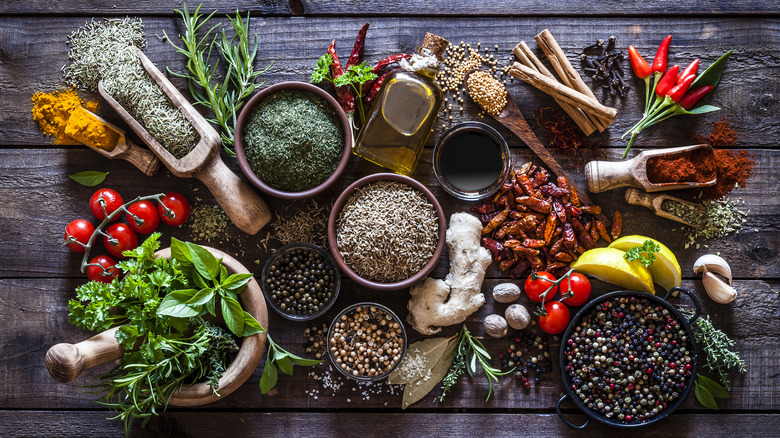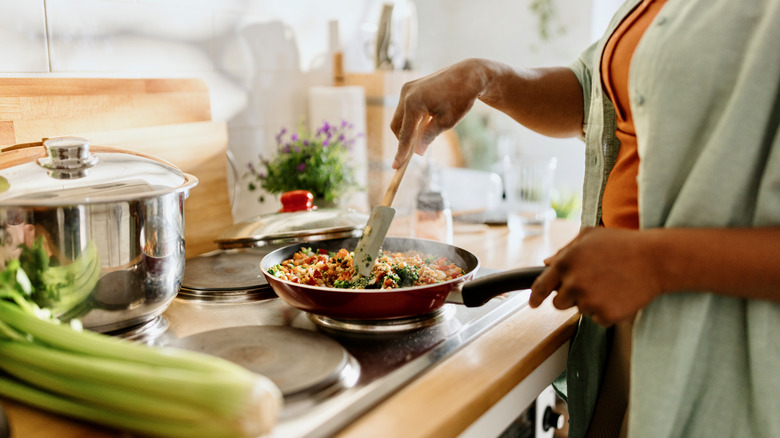When You Should Consider Skipping Specialized Ingredients In A Recipe
There's a certain allure to crafting a dish that's both decadent and rare, especially when a recipe calls for an exotic ingredient. Perhaps it's a dash of sumac, a spoonful of truffle oil, or a pinch of saffron. As you scan through the ingredients list of that new recipe you're eager to try, it's not uncommon to wonder: Is buying this specialty ingredient genuinely worth it?
For many home cooks, the kitchen is a place of creativity and experimentation. But practicality is often a factor, too. That's why adding specialty ingredients to your pantry doesn't always make sense.
The first pitfall many fall into is the "one-time use" syndrome. You splurge on that bottle of a rare spice, use it once, and then it languishes at the back of your pantry for years past its expiration date. If a recipe calls for an ingredient you're reasonably certain won't make a repeat appearance in your meals, it might be time to reconsider.
Not all specialty ingredients are created equal. Some play a pivotal role in the dish, while others merely add an additional layer of flavor. For example, if you're making a saffron risotto, there's no getting around the saffron. Its unique flavor and color make saffron unlike anything else in your pantry. In other cases, the specialty ingredient might play more of a background role such as using a particular vinegar in a dish with other accent flavors. In such cases, a more common vinegar or even a squeeze of lemon might suffice.
Consider its role
In most grocery stores, many ingredients have accessible counterparts. Before splurging, research potential substitutes. Often, a more common ingredient can mimic the flavor profile or effect of a specialty item. For instance, while nothing can truly replace the unique taste of truffles, in a pinch, a dash of umami-rich soy sauce or even mushrooms can add a depth of flavor reminiscent of the luxury ingredient.
If the special ingredient in question is something you foresee integrating as a pantry staple or in at least a few more meals, then it becomes a worthy investment. It's about building a relationship with that ingredient, understanding its nuances, and integrating it into your culinary repertoire.
Cooking is as much about passion as it is about pragmatism. While it's tempting to chase after new-to-you flavors and rare ingredients, the savvy home cook knows the value of discernment. So the next time a recipe seduces you with its list of rare ingredients, pause and reflect. Sometimes, the most memorable meals come from the simplest, most accessible ingredients.

